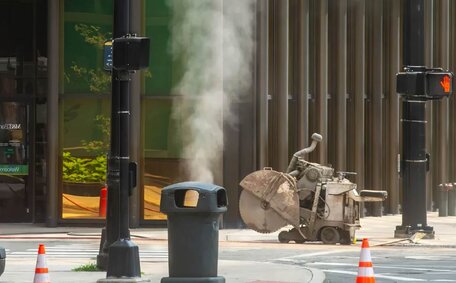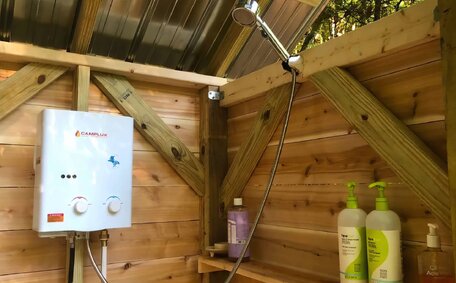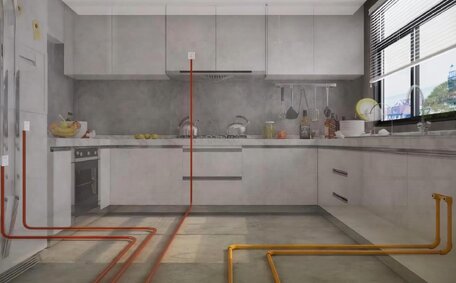
How To Move A Gas Meter
Need your gas meter relocated? You can’t move it yourself - contact your supplier to arrange for a gas engineer to reposition it safely. Charges may apply depending on circumstances.
Read MoreSolar hot water systems use solar energy to heat water, which is kept in an insulated tank. The systems consist of collector panels on the roof that capture sunlight to heat the water.
Homeowners with solar hot water systems can save approximately $200 to $600 each year on heating expenses.
With government rebates and incentives, most solar power hot water installations can present significant savings. The benefits solar water heating provides are a smart, green upgrade that offers households long-term savings and environmental benefits.
The installation cost of purchasing and installing a solar PV water heater can vary depending on the type of water system, size, your location, and complexity. Government rebates and incentives like Renewable Energy Certificates (RECs), which can reduce costs by up to $2,800, are significant factors to consider.
While this initial investment may seem high, the system solar can provide significant long-term savings. With energy heat costs from electricity and gas forecast to rise over the next decade, the savings conferred by a solar power system in your home are likely to increase substantially.
Utilising the sun’s free energy rather than electricity or gas, households could save $200-$600 each year on energy bills, contingent on hot water usage and size.
Considering a lifespan of 15 to 20 years, the energy bill savings can significantly exceed the initial investment. For example, a $6,000 system with $1,500 in rebates could pay for itself in about 5 years.
Solar water heaters can produce extremely efficient hot water thanks to their direct conversion of solar energy into heat. In optimal conditions, high-efficiency models equipped with a heat pipe can convert over 75% of solar radiation into usable heat energy for your water. This enables solar thermal panels to rapidly heat water on sunny days.
Solar hot water systems, unlike electric hot water setups, are also very reliable if designed correctly, ensuring consistent performance. Solar collectors can, designed to minimise heat loss, are solid-state devices not susceptible to wear or regular failure. Some components, like the insulated storage tank designed to efficiently heat air and water, will likely outlast the electric hot system itself.
With less moving parts, solar hot water systems demand minimal maintenance and have a lifespan of over 20 years.
Electric water heaters and gas systems need repair or replacement more often, typically within 7-15 years, whereas incorporating a heat pump may provide a more durable solution. Solar systems are custom-made to cater to your hot water needs, matching household requirements and water conditions, so by timing hot water production to match usage, they can provide over 90% of total hot water needs in places with high solar radiation.
Solar hot water systems reduce greenhouse gas emissions and reliance on fossil fuels, providing significant environmental benefits. This renewable technology harnesses the sun, avoiding the carbon emissions from conventional water heating methods.
Studies estimate a typical solar hot water system saves more than 1.5 - 5 tonnes of carbon dioxide per year that would otherwise have been emitted. As Australia’s 26 million hot water systems contribute over 10% of domestic emissions, the potential reduction from switching to solar is considerable.
Solar hot water systems, powered by the sun, epitomise the ethos of renewable and sustainable living. They demonstrate a commitment to tackling climate change while using solar water to reduce your heating costs. The environmental benefits of solar hot water render it an eco-friendly option that adds value to both your home and the planet.
There are several financial incentives available to help make installing a solar hot water system more affordable for Menai households.
The Australian Government offers rebates through the Small-scale Renewable Energy Scheme (SRES). For a typical residential solar system featuring evacuated tube collectors, SRES rebates can translate into your savings of around $2800-$3800 off the total cost. The exact rebate amount depends on factors like the type of solar hot water system and the amount of renewable energy it’s expected to produce.
The NSW Government also provides interest-free loans that can help offset solar hot water system cost for households up to $14,000 over 7 years for those meeting eligibility criteria. This can assist by spreading out solar hot water system costs into manageable repayments.
Menai residents should contact an authorised solar hot water provider to see if they qualify for local and federal renewable energy incentives. Solar hot water system installation costs range from $5,000 to $8,000, but with available rebates and financing options, most households can afford the transition.
Installing a solar hot water system involves securing solar panels to a north-facing roof area with little shade. The system generally includes either evacuated tubes or flat plate collectors. The insulated water tank and control unit must be located nearby to connect easily to your plumbing, allowing the option of a split system layout.
A solar specialist will determine the best type water heater components for your household size, climate, water usage and fitting them effectively on your roof. Proper installation is vital so collectors face optimal angles to maximise solar gain through the day.
A solar heating system demands minimal maintenance once operational. Regular clearance of debris from roof mounts, glazing, and connections is key to maintaining system performance. Annual inspections ensure proper operation.
Checking the system’s gauges and topping up the closed-loop fluid level in collectors every 5+ years may be required.
Routine servicing ensures a quality solar hot water system can reliably function for 15-25 years. Maintaining clean collectors and performing preventative repairs when necessary further prolongs the system’s lifespan. An investment in solar can continue providing households significant savings for decades on hot water energy bills.
Several crucial factors influence the cost-effectiveness of investing in various solar hot water systems for Menai residences:
Menai’s abundant sunlight and rising energy costs make installing solar hot water systems an environmentally responsible and cost-efficient improvement. Seeking professional guidance is crucial for choosing the right solar system to match your budget, water usage and home.
When contemplating the installation of solar hot water systems for your Menai residence, its important to balance the potential pros and cons solar energy might present for your unique scenario.
For environmentally conscious households with high hot water demand, solar systems offer a financially savvy option that can lead to thousands in savings over the system’s lifetime.
In Menai’s sunny conditions, a well-sized solar hot water system can supply between 50 to 85 percent of a house’s hot water needs, potentially reducing energy bills by as much as $600 annually.
However, for smaller households with low hot water usage, the higher upfront cost of solar, despite rebates, may be challenging to justify as the payback period could extend beyond the system’s life.
We recommend using our hot water usage calculator or booking a consultation so Menai Plumbing can assess your situation. We can advise whether investing in solar hot water will deliver sufficient savings and value for your household over 15-25 years.
With rising electricity prices making solar increasingly cost-effective, renewable hot water can be a smart eco-upgrade that pays for itself. Contact our team – our expertise will help decide if a solar solution is right for your home.
We trust that this solar hot water guide has clarified how these systems work and assisted in evaluating their worth for your household.
For further information on solar hot water systems or advice tailored to your home’s situation, Menai Plumbing offers free, no-obligation consultations. Speak to one of our hot water experts on 1300 349 338 or email [email protected].
We can arrange an on-site evaluation to assess your solar hot water needs, provide quotes for suitable systems, and advise eligibility for government rebates to improve affordability.
Additional resources include:
Investing in solar hot water technology offers lasting reductions in energy bills and a greener approach to water heating. Get in touch with the Menai Plumbing team to explore if it’s a smart, cost-effective choice for sustainable water heating in your home.
Need your gas meter relocated? You can’t move it yourself - contact your supplier to arrange for a gas engineer to reposition it safely. Charges may apply depending on circumstances.
Read MoreInvesting in a solar hot water system can save up to 75% on water heating costs. With great returns and added home value, solar hot water can be a smart choice over electric or gas heaters. Contact us to see if it’s the right investment for your home.
Read MoreWhile natural gas and propane can both power appliances in your home, they have notable differences when it comes to BTU output, infrastructure, safety, cost and more. Understanding these key contrasts will help you determine which is better for your specific needs.
Read MoreMenai, 2234 NSW
We will call back as soon as possible.




